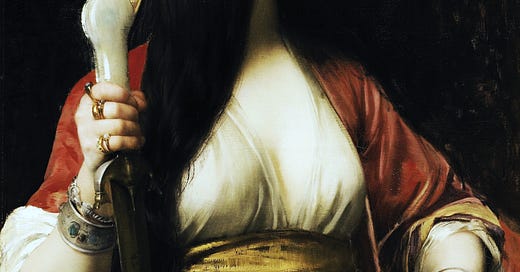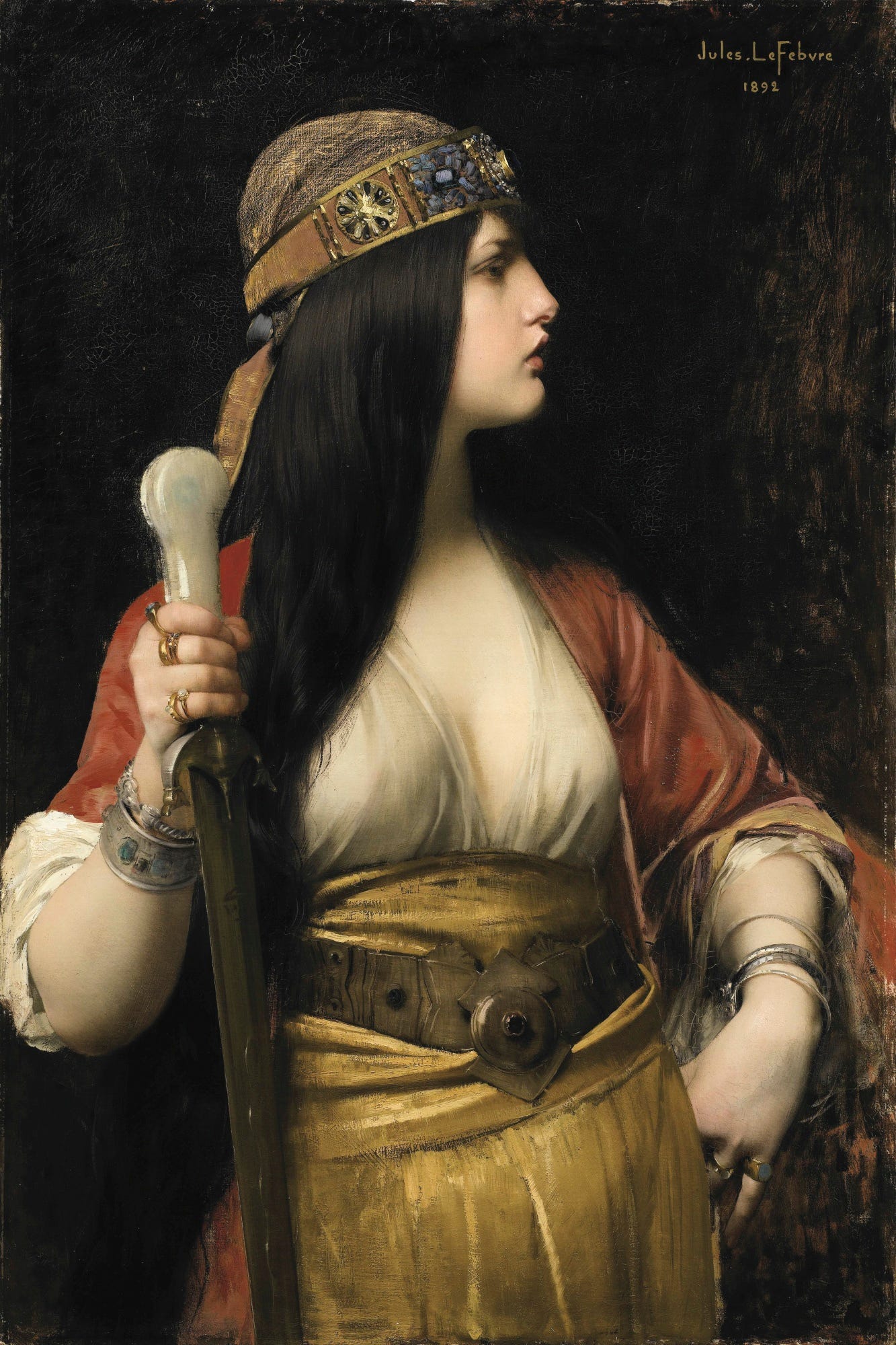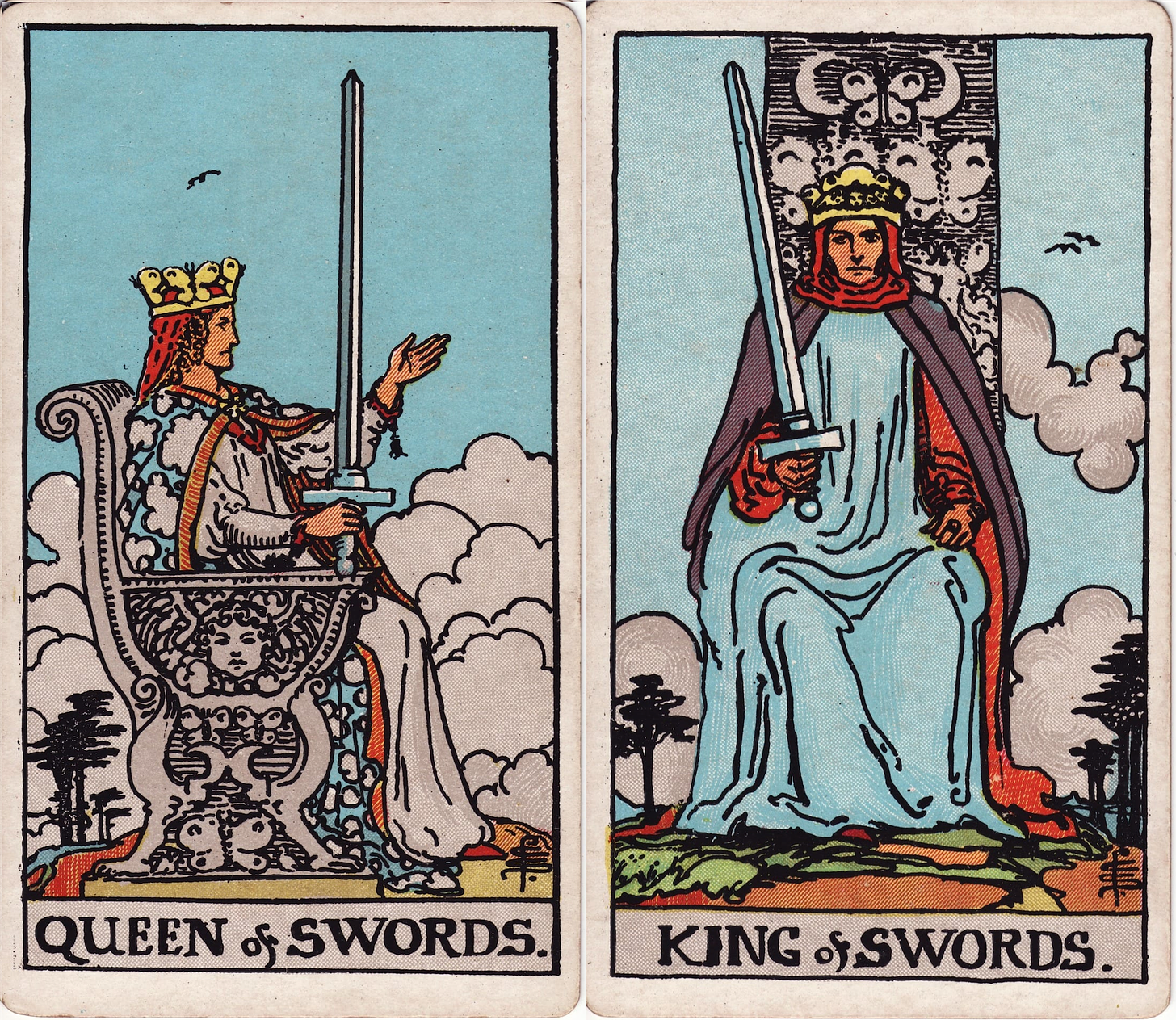In this edition of The Artemisian, I'll be answering a question submitted by a paid member. If you'd like to submit one of your own, consider joining the membership community. Upgrading allows you to engage further via in-depth monthly classes, access to the resource library and more1. Your support also allows me to devote more time to these offerings and ensures they remain accessible.
A paid member writes…
Every time I draw a swords card, I get a bad feeling about my reading, like something bad is going to happen or I'm in danger or there's no hope for the problem I'm addressing. Am I interpreting the swords wrong? How should I approach working with the swords in a positive way?
The tarot suit of the swords is infamously provocative. Especially within the pictorial images of the Rider Waite Smith deck, we see challenges of life, trappings of consciousness and cognitive distortions depicted with stark and unsettling clarity.
The embodied response is hard to ignore; we recoil at the images and a sinking feeling emerges in the pit of our stomach. We long to throw the card back into the deck and re-shuffle, testing fate once more, hoping for a better outcome.
It’s helpful to contextualize the sword symbolically. Though rich in various layers of meaning, most simply, we can think of it as an agent of separation and differentiation. Double-edged in nature, it brings illumination by cutting through illusions, by making things clear and distinct. These well-defined boundaries, the sharp lines of delineation, in turn, create conflict. No longer are things murky, uncertain, entangled. Instead, the clarity brought by the sword's edge reveals truths that may be difficult to face, leading to inner turmoil and external strife.
The sword, then, becomes a tool not just of division, but also of transformation. Though the process may be difficult and realities painful to contend with, the potential to grow our sphere of awareness heightens. Many of the swords show the consequence of living in unconscious conditions, of being willfully ignorant, of turning away from the task of coming to consciousness. They also imply paths toward resolution and potentials for reconciliation.
The 3 of Swords is the moment of sorrow and suffering when truth pierces the heart, like when the betrayal of a loved one is made clear. It shakes us to our core, we feel vulnerable, wounded, raw. It’s not just the hurt of what has come to pass, but the shattering of a narrative we held dear. In the aftermath, the card asks us to reflect: What is born from this loss? What do I see more clearly now? What wisdom is gained through this experience?
The 8 of Swords depicts how we have become bound in an oppressive environment, whether self-imposed or externally dictated. Like the trappings of reasoning that say, “I cannot leave this job, I have no other options, I am stuck here.” These cognitive chains are usually weak, like the image depicts, and are subject to crumble when we remove the blindfold and open our eyes to the truth. We can facilitate this process by asking: What am I avoiding or refusing to see? What opportunities for liberation am I not entertaining? What mental patterns are keeping me stuck?
The 10 of Swords shows the reality of carrying deep wounds for too long, impaled to the ground, a part of ourself lays lifeless. Utter defeat may be present but so is the dawning of a new day, the dark night of pain and hardship is receding, and the cycle is coming to a close. We hover in a space of liminal uncertainty and without conviction, we may find ourselves perpetuating the suffering. To move through it, consider: What has truly ended and what am I ready to let go of? How can I tend to my wounds while looking toward the future? What resources do I need to help this process along?
The Swords and the Thinking Function
“Thinking is impersonal. It intentionally excludes values-based considerations. Most people with a Thinking preference would rather be truthful than tactful and are more interested in being fair than in being kind.”
— Leona Haas & Mark Hunziker, Building Blocks of Personality Type
Each of the suits of the minor arcana can be traced back to Jung’s framework of psychological types and the four functions2. In this sense, each of the suits reveals developmental paths of consciousness. It shows us how psyche grapples with reality and the tools of perception we have at our disposal.
The swords correlate to the thinking function which seeks an impartial, conceptual understanding of existence defined by logical and rational terms. The feeling-approach is naturally suppressed when this function is activated. To harness quickness of the mind, to utilize abstraction, to rise to new heights with an elevated perspective requires that we are not weighed down by the subjectivity of our emotional dynamics.
The difficulties of the suit are a result of when we become enmeshed with our passions, when we are overrun with fear or lost in a stalemate of uncertainty. Tapping into a thinking-style gives us space from these tensions, allowing us to approach a situation methodically, observe the facts, and gain an objective understanding.
We see the prowess, maturity, and integration of the thinking function most clearly in the Queen and King of Swords. They are the fully realized psychological manifestations of the suit. In Tarot Definitions3, I describe them as:
Queen of Swords - “The Crone" - Keen perception, balances emotional dynamics with intellectuality, provides knowledge and insight in an honest and direct manner, desire to guide others towards reality and truth, liberation and independence
King of Swords - “The Judge" - Intellectual authority, utilizing the power of objectivity, honesty, articulate speech, analytical and pragmatic, ethical and just, a commitment to truth, knowledge and reason as tools to overcome challenges
Their thrones are adorned with butterflies, a symbol of the painful dissolutions that paved the way for transformation. Through their intellectual authority, they were able to integrate each lesson on the path, so it could serve as a model and inspiration for others. They provide a map for navigating the chaos of life, the guiding wind that fills our sails and brings us back to safety.
Next time you draw a swords card, ponder how this is an opportunity to cultivate a deeper awareness of self. How rationality, logical analysis, and decisive action can clear the psychological landscape. Explore the thinking function, the realm of the mind, to free yourself from the binds of emotional turmoil. Allow this to put things into perspective, for problem-solving and path-finding. See how these hardships lend themselves to the growth of personality, to become wiser through meeting life in the fullness of its beauty, shadows and challenges.
Join the conversation
What is your relationship to the tarot suit of swords?
Which card from the swords do you feel most drawn to? Which do you recoil from?
Do you relate to the thinking function or find it difficult to access?
Archetypal Guidance Q&A
Paid Members - Interested in having your inquiry answered in the next Q&A? Submit a question about archetypal and Jungian psychological ideas as they relate to your inner work below.
Wands = Intuition, Cups = Feeling, Swords = Thinking, Pentacles = Sensation








Did you listen to the voiceover for today's post? Do you prefer having the option to listen or read? Leave a comment and let me know!
Thanks, a really helpful post. In the Wildwood deck the arrows suit is not so stark as the Rider Waite and the 10 swords has a quite unique take that seems to run contrary to usual interpretations and images. However, the card that I've repeatedly drawn this year is the 6 arrows, depicted as a swan boat upon calm waters, a ferryman, the full moon. I'm drawn to it very much because it seems to permit a period of collapse, letting the waters and the ferryman take me along for a a while during a v difficult transition period. I recoil from the blindfolded woman in the two arrows, who cannot see that the scales are unfairly weighted. It brings out frustrated indignation concerning the injustices within contemporary society and a feeling of powerlessness to act against the strong. As for the thinking function, I'm an academic so have to use it all the time, but its hard work as I am an INFJ. I find abstract thinking particularly difficult esp if its a philosophical paper that is full of jargon and assumed knowledge. I can do it, but it doesn't come naturally. Makes me sleepy!